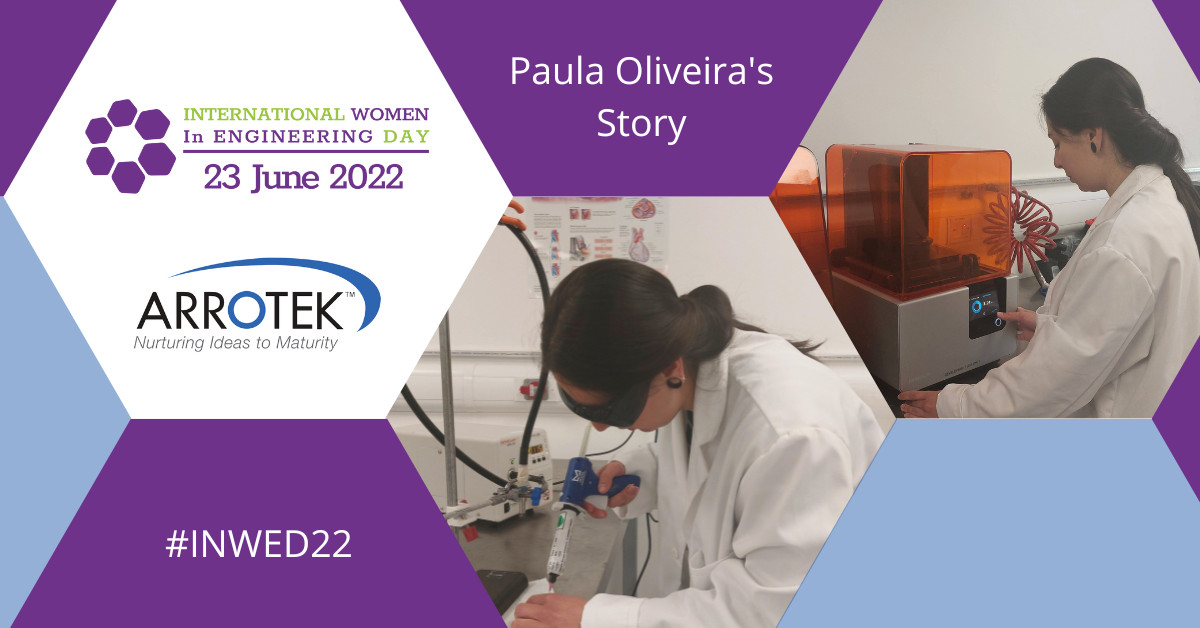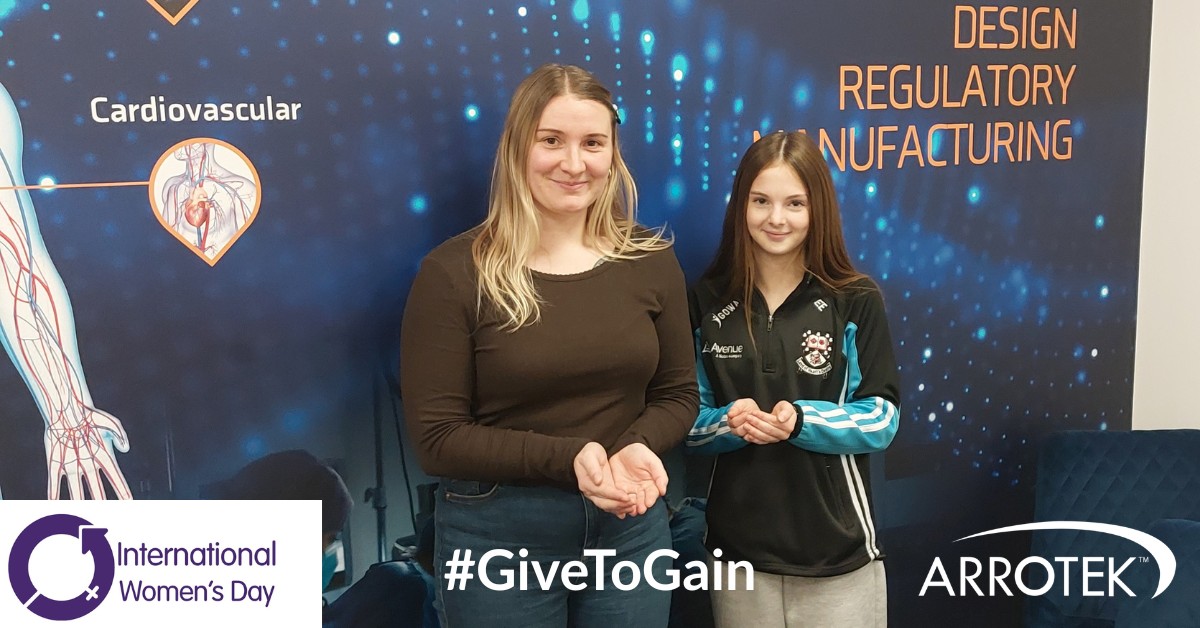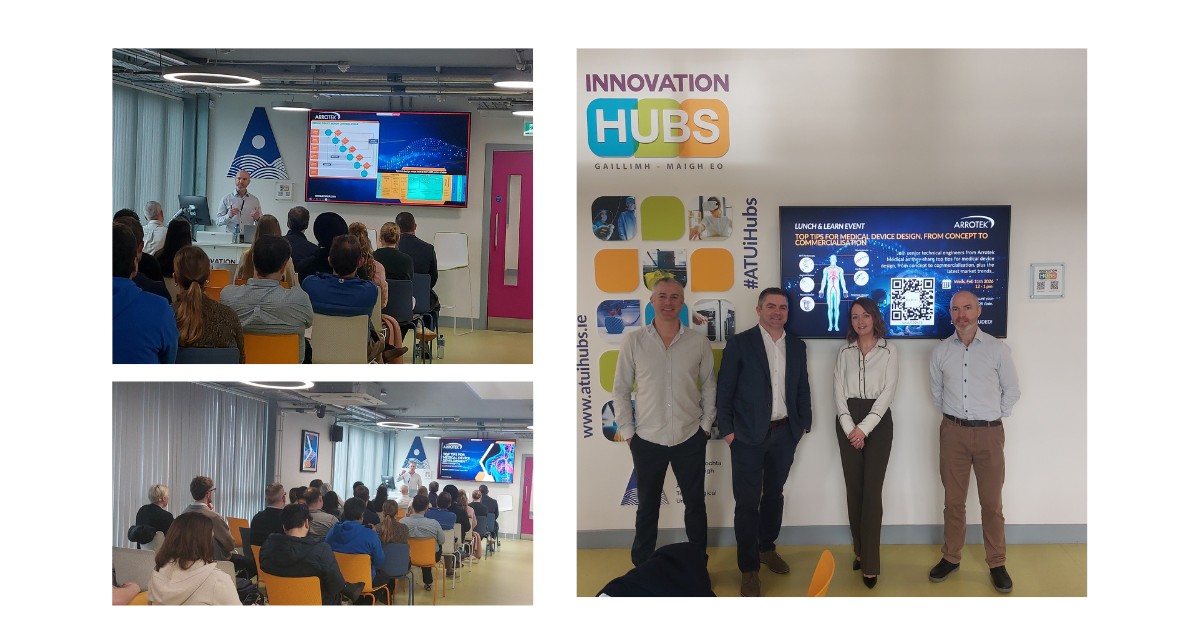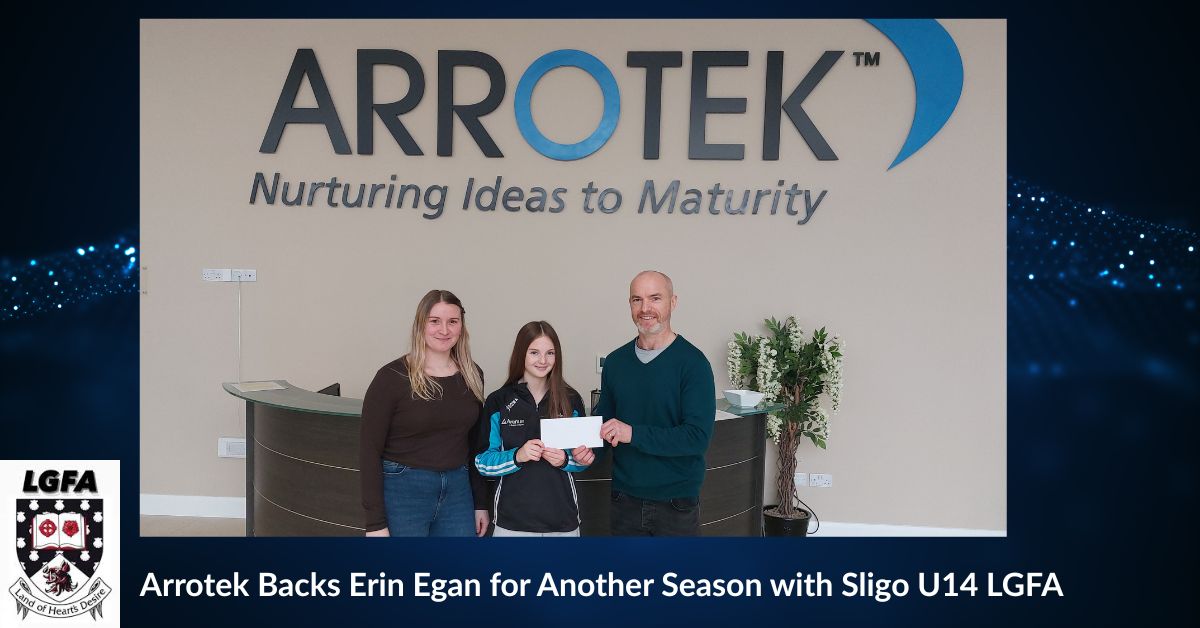International Women in Engineering Day is an annual event to celebrate the success of female engineers. It is also a day to highlight the underrepresentation of women in engineering, including in the medical device industry. According to Engineers Ireland, only 12 percent of engineering professionals are women. One of them is Arrotek’s Paula Oliveira.
Paula’s story is inspirational, but it also puts a spotlight on some of the issues that are limiting efforts to get a better gender balance in the engineering sector. In telling her story, Paula highlights that a lot of engineers in the medical device industry have a mechanical engineering background. Paula’s background, however, is in industrial design, and she is now progressing her career and taking on new challenges.
Paula believes the medical device industry should sell itself more – to women and to men. She also says women should consider it as a career, emphasizing the fact there are multiple pathways into the industry.
“To build an engineering career in the medical device industry, you can follow your passion and your interests,” said Paula. “That could be mechanical engineering, but it doesn’t have to be. For me, it was industrial design.”
Moving to Ireland and Finding the Medical Device Industry
“After moving to Galway from Brazil, I did a degree in industrial design. There were a lot of women on the course – I think it was 50:50 or close to that level – but the medical device industry wasn’t a first-stop choice for the graduates I knew.
“It wasn’t the first choice for me, either, as I had a solid idea while studying for my degree that I wanted to work in app design. So, I was aiming for roles in app design, website design, things like that, but then I got the opportunity to move into products and the medical device industry.
“In my last year of college, I was able to do an internship in a medical device company, and that experience really opened my mind. I got a better understanding of the industry, and I could see it was growing. I also saw the level of creativity in the industry and the opportunities to think outside the box.
“It is also a very fulfilling industry to work in because you are creating important medical products and devices.
“This would be my first point, as I got an opportunity and decided to give it a go. Some people won’t try because they think it is not for them, or they think you need a mechanical engineering background, or they have another reason. I would say you won’t know until you try.”
Progressing a Career in Arrotek
“After I graduated with my industrial design degree from GMIT, I moved to Sligo,” Paula explained. “The reality for me at that time was that I was short of money, so I went for a job to work on the Arrotek production line. It wasn’t directly connected to my degree, but it was a decision that set me on a path to where I am today.
“When I took the job on the production line, I knew I wanted to work in the medical device industry in a role relevant to my degree, but I didn’t have the necessary experience to get a job in engineering. So, I grasped the opportunity of working in manufacturing with both hands. I was able to learn about R&D as that is such a big part of what Arrotek does, but I also learned about materials, logistics, and other elements of the manufacturing process.
“The management knew I wanted to progress to the engineering department, so I got an opportunity to move into a design engineer position working as an Engineering Assistant.
“It’s been fantastic so far, delightful. I think my experience on the manufacturing side has helped me a lot too. With the projects I am working on, it’s important to know the issues that can arise on the manufacturing side.
“I am still on my engineering journey and have ambitions I want to achieve, but it really is a rewarding career, and the medical device industry is a rewarding and fulfilling industry. We need to get that message out there more, especially to girls and young women.”





